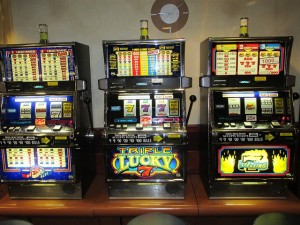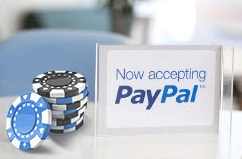 For better or for worse, it is undeniable that we live in an age of mobile computers. Most of us carry at least one smart device with them at all times, and those who don’t and prefer to stick with an old-school mobile phone that’s not a smartphone are being looked at as if they’re the outcasts of society, the equivalent of the lonely, bearded hermits living in huts in the forest. In the digital age, it’s all connected – I can use my phone to buy a game and set it to download on my PS4 for when I come home from work, I can watch TV or Netflix wherever I am, and with certain setups I can even do stuff like control the temperature of my house. It seems like there’s nothing those tiny devices aren’t capable of, and considering the fact that the overwhelming majority of us carry one literally everywhere, it didn’t take long for developers to start pushing their software in new and exciting directions.
For better or for worse, it is undeniable that we live in an age of mobile computers. Most of us carry at least one smart device with them at all times, and those who don’t and prefer to stick with an old-school mobile phone that’s not a smartphone are being looked at as if they’re the outcasts of society, the equivalent of the lonely, bearded hermits living in huts in the forest. In the digital age, it’s all connected – I can use my phone to buy a game and set it to download on my PS4 for when I come home from work, I can watch TV or Netflix wherever I am, and with certain setups I can even do stuff like control the temperature of my house. It seems like there’s nothing those tiny devices aren’t capable of, and considering the fact that the overwhelming majority of us carry one literally everywhere, it didn’t take long for developers to start pushing their software in new and exciting directions.
Two of these directions are mobile gaming and mobile gambling – two words that sound very similar, but are, in fact, completely different. Mobile gaming refers to any interactive videogame that you can play on your phone. Sometimes you pay for the game outright and then play it in its entirety like any other, but this business model is much rarer compared to the so-called “free to play” one, where you get the game for free and then pay for additional features, such as characters, lives or faster progression. Free to play has been an immensely popular business model, to the point where even some non-mobile games, such as “Dota 2” on PC, “Let it Die” on PS4 and “Killer Instinct” on Xbox One have adopted it. The concept of trying the game out for free before paying for in-game stuff has been so utterly successful that it has actually elevated mobile gaming to one of the most successful industries in the world, with it grossing more than $40 billion last year alone.
Mobile gambling, on the other hand, refers to a model that is very similar to “free to play” – you get the game for free, and you can play it for free as much as you want. However, if you choose to bet some real money on it, you have the chance to win real money back! That’s amazing, isn’t it? I mean, that’s much better than just playing an endless moneysink, which is what many mobile games are – here when you pay you can actually win real money! This concept should be primed for success… Except it’s not. Back in 2015, every single online casino was launching a mobile counterpart and heavily pushing it with promotions, bonuses and exclusive games, while today you’ll barely even get a mention on most sites that such a thing exists. Mobile gambling, despite its potential, ultimately didn’t amount to much and was but a footnote in casino history rather than the gamechanger it was supposed to be. But why?
Well, a big problem with it was marketing. The thing is, almost no businesses or new ventures are financially successful when they first launch no matter how much potential they have to turn in profit down the line. Quick, what’s the most successful music streaming app you can think of? Most people would immediately answer with “Spotify”, and they wouldn’t be wrong at all, but the truth is that Spotify has still not turned in a profit after years of being a market leader. Mobile casino, similarly, didn’t turn in a profit immediately, which is completely understandable. It was a new concept which required some warming up to, especially since its primary demographic were not mobile gamers but rather casino players who wanted to take their games on the go (which, again, may have been a mistake). When faced with loss and difficulty, online casinos should have taken a lesson from their players and went all in, heavily advertising their mobile gambling services and taking the loss on them for a while until they became profitable. Because there’s potential in the idea, as well as the market to cash in on that potential. All that’s needed is a CEO willing to go for it.
 There’s absolutely nothing that distinguishes 27-year old Rawiri Pou from the rest of us. The young man from New Zealand, currently working at a KFC fast food restaurant, lived a humble life and, much like many of us, he loved to play online slots from time to time. His slot of choice was “Mega Moolah”, which is famous for having one of the biggest jackpots in the world and having already made
There’s absolutely nothing that distinguishes 27-year old Rawiri Pou from the rest of us. The young man from New Zealand, currently working at a KFC fast food restaurant, lived a humble life and, much like many of us, he loved to play online slots from time to time. His slot of choice was “Mega Moolah”, which is famous for having one of the biggest jackpots in the world and having already made  4 Seasons – Winter, Spring, Summer and Fall – who ever said you can’t have it all? Leaving my rhyming talent aside, I have to say that this slot is truly entertaining and the
4 Seasons – Winter, Spring, Summer and Fall – who ever said you can’t have it all? Leaving my rhyming talent aside, I have to say that this slot is truly entertaining and the  A Christmas Carol – If you want to relive Dickens’ tale in amazing 3D, high definition cinematic graphics, then look no further than A Christmas Tale. A slot to bring out the child in you and make you feel all warm and fuzzy inside, this Betsoft creation will bring the best of Christmas cheer into your home. No need to fear Uncle Scrooge or any of the three ghost in the bonus features – Ghost of Christmas Past, Present and Future, as they are only here to serve and give your bankroll a serious boost. With 3 reels and 20 paylines, this video slot will sprinkle the magic of Christmas all year long.
A Christmas Carol – If you want to relive Dickens’ tale in amazing 3D, high definition cinematic graphics, then look no further than A Christmas Tale. A slot to bring out the child in you and make you feel all warm and fuzzy inside, this Betsoft creation will bring the best of Christmas cheer into your home. No need to fear Uncle Scrooge or any of the three ghost in the bonus features – Ghost of Christmas Past, Present and Future, as they are only here to serve and give your bankroll a serious boost. With 3 reels and 20 paylines, this video slot will sprinkle the magic of Christmas all year long. The Tipsy Tourist – Relive the summer over and over again with the perfect example of Betsoft’s industry-leading Slots3™ style, The Tipsy Tourist. Spin the 5 reels of this 20-payline slot and enjoy the numerous free spins, wilds and scatter symbols or simply make the best of the bonus round where you need to challenge Gary to a drinking contest.
The Tipsy Tourist – Relive the summer over and over again with the perfect example of Betsoft’s industry-leading Slots3™ style, The Tipsy Tourist. Spin the 5 reels of this 20-payline slot and enjoy the numerous free spins, wilds and scatter symbols or simply make the best of the bonus round where you need to challenge Gary to a drinking contest. The partnership of the two was announced just before the opening of the ICE gaming exhibition in London. All sister brands of the Betsson Group will now offer the most up-to-date, cross browser and mobile compatible games from Quickspins. This will cover sports, casino and live casino games, poker and bingo.
The partnership of the two was announced just before the opening of the ICE gaming exhibition in London. All sister brands of the Betsson Group will now offer the most up-to-date, cross browser and mobile compatible games from Quickspins. This will cover sports, casino and live casino games, poker and bingo. Online bingo has been on the raise ever since it’s launch back in 1996, and it has become very popular around the world. Why you wonder? It is quite simple – it’s handy – you can play it at home or pretty much anywhere on any device; the rules are simple and it’s much faster and therefore exciting than the traditional game. And, let’s face it – it is one of the most socially acceptable forms of gambling.
Online bingo has been on the raise ever since it’s launch back in 1996, and it has become very popular around the world. Why you wonder? It is quite simple – it’s handy – you can play it at home or pretty much anywhere on any device; the rules are simple and it’s much faster and therefore exciting than the traditional game. And, let’s face it – it is one of the most socially acceptable forms of gambling. Bonuses are the main selling point of many gaming site. Whilst you shouldn’t let yourself be fooled by them blindly, you should research and compare what is out there and which options best suit your way of playing – are you a spontaneous player or you play regularly? How much do you spend on average? What games do you play exactly? All those questions answered will help you making a better choice.
Bonuses are the main selling point of many gaming site. Whilst you shouldn’t let yourself be fooled by them blindly, you should research and compare what is out there and which options best suit your way of playing – are you a spontaneous player or you play regularly? How much do you spend on average? What games do you play exactly? All those questions answered will help you making a better choice. We have always thought of a trip to our local casino as an all fun and games experience, with your usual soar loser acting up every now and then, right? Right, but not quite! When a person almost loses an eye, things tend to take a turn for the worse.
We have always thought of a trip to our local casino as an all fun and games experience, with your usual soar loser acting up every now and then, right? Right, but not quite! When a person almost loses an eye, things tend to take a turn for the worse.
 The new entity will run nearly 4,000 betting shops and will have more than 30,000 employees. Thus, ‘Ladbrokes Coral’ will dethrone the current leader, William Hill, which have about 2.300 betting shops and 26% of the UK market share. This deal offered Ladbrokes the opportunity to take the lion’s share of the market and actually overtake it. The enlarged company will become the biggest player on the UK online gambling market. Ladbrokes’ main former rivals are William Hill (2,300 betting shops), Paddy Power (7.9% market share) and Betfair (10.2%).
The new entity will run nearly 4,000 betting shops and will have more than 30,000 employees. Thus, ‘Ladbrokes Coral’ will dethrone the current leader, William Hill, which have about 2.300 betting shops and 26% of the UK market share. This deal offered Ladbrokes the opportunity to take the lion’s share of the market and actually overtake it. The enlarged company will become the biggest player on the UK online gambling market. Ladbrokes’ main former rivals are William Hill (2,300 betting shops), Paddy Power (7.9% market share) and Betfair (10.2%).